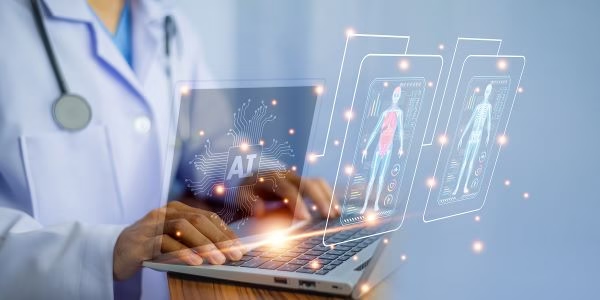WASHINGTON, D.C. — Rep. Nanette Barragán (CA-44) Nov. 18 introd uced the Healthcare Education in AI Literacy (HEAL A.I.) Act, a bill that would establish a grant program for medical schools to create or continue the development of curriculums in literacy for artificial intelligence.
AI can advance health care through its abilities to strengthen diagnostic capabilities, streamline clinical operations, and automate routine tasks such as scheduling and patient documentation. It can also enable providers to dedicate more time to patient care while improving efficiency and accuracy across both research and clinical practices.
To embrace the opportunities this technology provides, medical professionals and the upcoming workforce must be prepared to leverage the benefits of AI. This bill will give medical schools and residency-sponsoring institutions the resources for students and residents to gain hands-on experience with AI tools in health professions, so that they can understand how to optimize A.I.’s ability to improve patient care, streamline workflows, and enhance decision-making before entering the workforce.
“The National Hispanic Medical Association (NHMA) supports the Healthcare Education in AI Literacy (HEAL-AI) Act, which prepares future physicians to use artificial intelligence (AI) responsibly in patient care. This bill ensures that AI training is grounded in ethics, equity, and transparency, which are important principles for reducing disparities in health outcomes. By prioritizing schools that serve Latino and other underrepresented communities, the HEAL-AI Act will help build a physician workforce ready to deliver innovative and equitable care,” said the National Hispanic Medical Association.
Specifically, the bill creates a grant program at the Health Resources and Services Administration (HRSA) in the Department of Health and Human Services for the education and training of medical students, medical residents, and medical faculty in the deployment of artificial intelligence.
The bill authorizes $1,000,000 per year from FY 2026 to FY 2030, with the maximum grant amount to be given to a medical school capped at $100,000 annually.
The bill also requires schools that receive the grant to publicly report how AI education and training were integrated into existing school curricula, the number of learners that enrolled and successfully completed at least one course funded by the grant funds, and to list any organization the school may have collaborated with to carry out the programming made possible by the grant.
Supporting Organizations: National Hispanic Medical Association
The bill is cosponsored by Representatives Josh Gottheimer (NJ-5) and Ted Lieu (CA-36).
Details: View the full bill text HERE.



